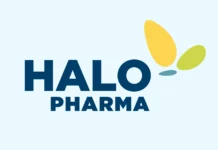In the ever-evolving world of healthcare, the role of pharmaceutical companies in ensuring patient safety has never been more significant. As we step into 2025, the landscape of medical negligence is undergoing critical changes. If you are seeking professional advice on medical negligence claims, consider consulting medical negligence solicitors for guidance.
This blog post delves into the responsibilities of pharmaceutical companies in safeguarding patients, highlighting the importance of stringent regulations and ethical practices. Read on to work out how you can do your bit to ensure patient safety whilst remaining legally compliant.

The Importance of Pharmaceutical Regulations
Pharmaceutical regulations are crucial in maintaining the integrity and safety of medical products. They ensure that medications are developed, manufactured, and distributed under stringent guidelines. In 2025, these regulations are more rigorous than ever, with an increasing focus on transparency and accountability.
Current good manufacturing practice (CGMP) regulations set the standard for how pharmaceutical products should be produced. These regulations are designed to prevent instances of contamination, mix-ups, and errors in the production process. By adhering to these standards, pharmaceutical companies can minimise risks and protect patient safety.
Global Standards in Pharmaceuticals
As the world becomes more interconnected, the need for global standards in pharmaceuticals is increasingly evident. International collaboration ensures that all countries adhere to a unified set of regulations, thereby safeguarding patients wherever they may be. The role of international organisations in harmonising these standards cannot be overstated.
- Establishment of consistent regulations across borders
- Facilitation of cross-border pharmaceutical trade
- Promotion of innovation and research through shared knowledge
To understand more about the complexities of pharmaceutical regulation, you can explore detailed resources on pharmaceutical regulation available online.
Ensuring Quality in Pharmaceutical Practices
Quality assurance in the pharmaceutical industry is a pillar of patient safety. It involves rigorous testing and validation processes to ensure that each product meets the required safety and efficacy standards. Pharmaceutical companies must implement comprehensive quality management systems (QMS) to oversee these processes effectively.
In addition to quality assurance, the concept of continuous improvement is vital. This involves regularly reviewing and updating practices to adapt to new scientific findings and technological advancements. By doing so, pharmaceutical companies can maintain high standards of quality and safety in their products.

The Role of Ethical Practices
Ethical practices in the pharmaceutical industry are paramount in establishing trust between companies and the public. In 2025, ethical considerations encompass a range of responsibilities, from transparent reporting of clinical trial results to ensuring equitable access to life-saving medications.
Pharmaceutical companies must prioritise patient welfare over profits. This can be achieved by:
- Ensuring transparent communication with healthcare providers and patients
- Maintaining integrity in research and development
- Implementing robust pharmacovigilance systems to monitor drug safety
These ethical practices not only protect patients but also enhance the reputation of pharmaceutical companies, fostering a culture of trust and accountability.
Technological Advancements and Patient Safety
The role of technology in advancing patient safety cannot be overlooked. In 2025, pharmaceutical companies are leveraging advanced technologies to improve drug development and safety monitoring, ultimately reducing the risk of medical negligence.
Data Analytics and AI
Data analytics and artificial intelligence (AI) have become integral to the pharmaceutical industry. By analysing vast amounts of data, companies can predict potential safety issues and optimise drug formulations. AI-driven systems can also identify patterns indicative of adverse drug reactions, allowing for timely interventions.
Furthermore, AI enhances the efficiency of clinical trials, enabling faster development of safe and effective drugs. This technological leap forward helps minimise the risks associated with new drug introductions to the market.
Blockchain Technology
Blockchain technology is revolutionising the way pharmaceutical supply chains operate. By providing a secure and transparent ledger of transactions, blockchain ensures the authenticity and traceability of medications from production to patient.
This technology enhances the integrity of the supply chain, reducing the risks of counterfeit drugs entering the market. It also facilitates the easy recall of defective products, thereby safeguarding patient safety.
The Future of Pharmaceutical Oversight
Looking ahead, the landscape of pharmaceutical oversight is poised for transformation. Regulatory bodies worldwide are increasingly focusing on enhancing their frameworks to keep pace with scientific advancements and emerging challenges.
A key development in 2025 is the emphasis on real-time monitoring of pharmaceutical practices. This proactive approach allows regulators to swiftly address issues before they escalate into larger problems. Additionally, increased collaboration between regulatory agencies and pharmaceutical companies is fostering an environment of shared responsibility in ensuring patient safety.
For those interested in the intricacies of pharmaceutical manufacturing standards, further insights can be found by exploring official guidelines about current good manufacturing practices.
Taking Lessons Forward
In conclusion, the responsibility of pharmaceutical companies in ensuring patient safety is multifaceted. Through strict adherence to regulations, commitment to ethical practices, and embracing technological advancements, these companies play a crucial role in mitigating the risks of medical negligence. As we move forward, the continuous evolution of pharmaceutical oversight will be instrumental in safeguarding the well-being of patients across the globe, fostering a healthcare environment that is both safe and trustworthy.
Please be advised this article is for informational purposes only and should not be used as a substitute for advice from a trained lawyer or doctor. Please seek the advice of a lawyer or doctor if you’re facing issues regarding pharmaceutical law.




















